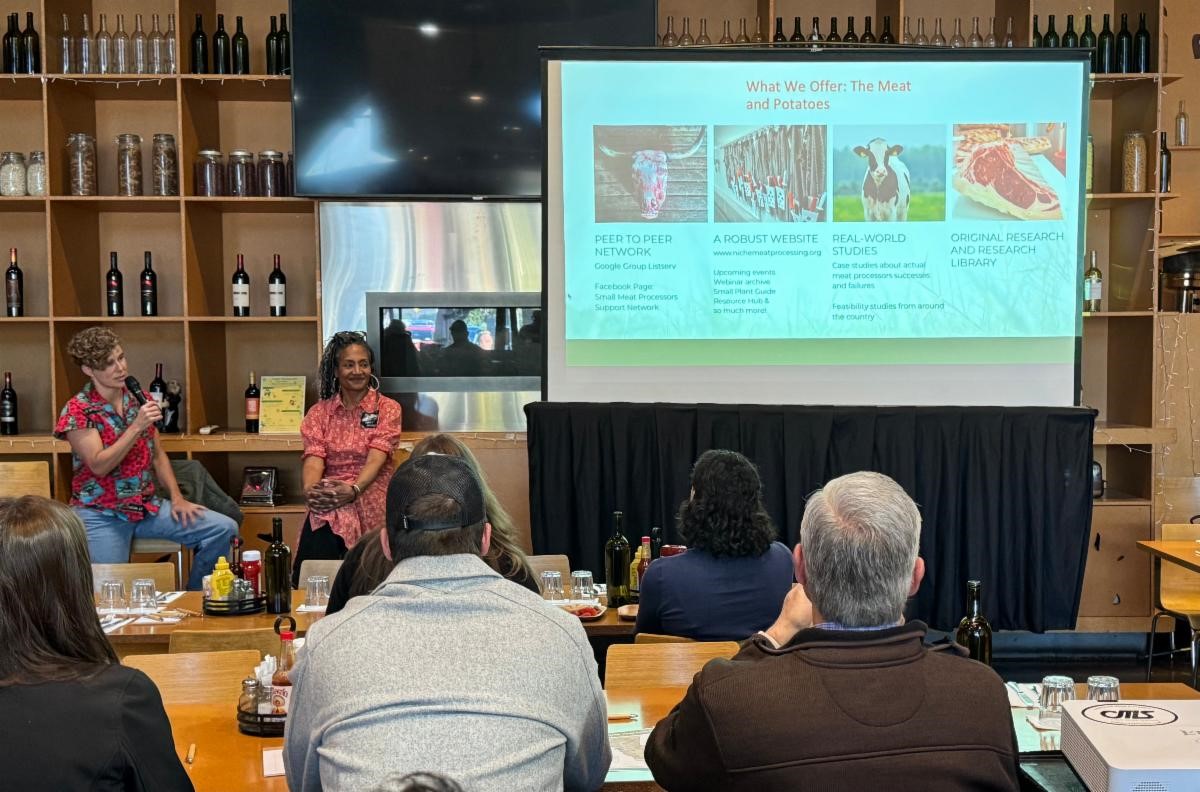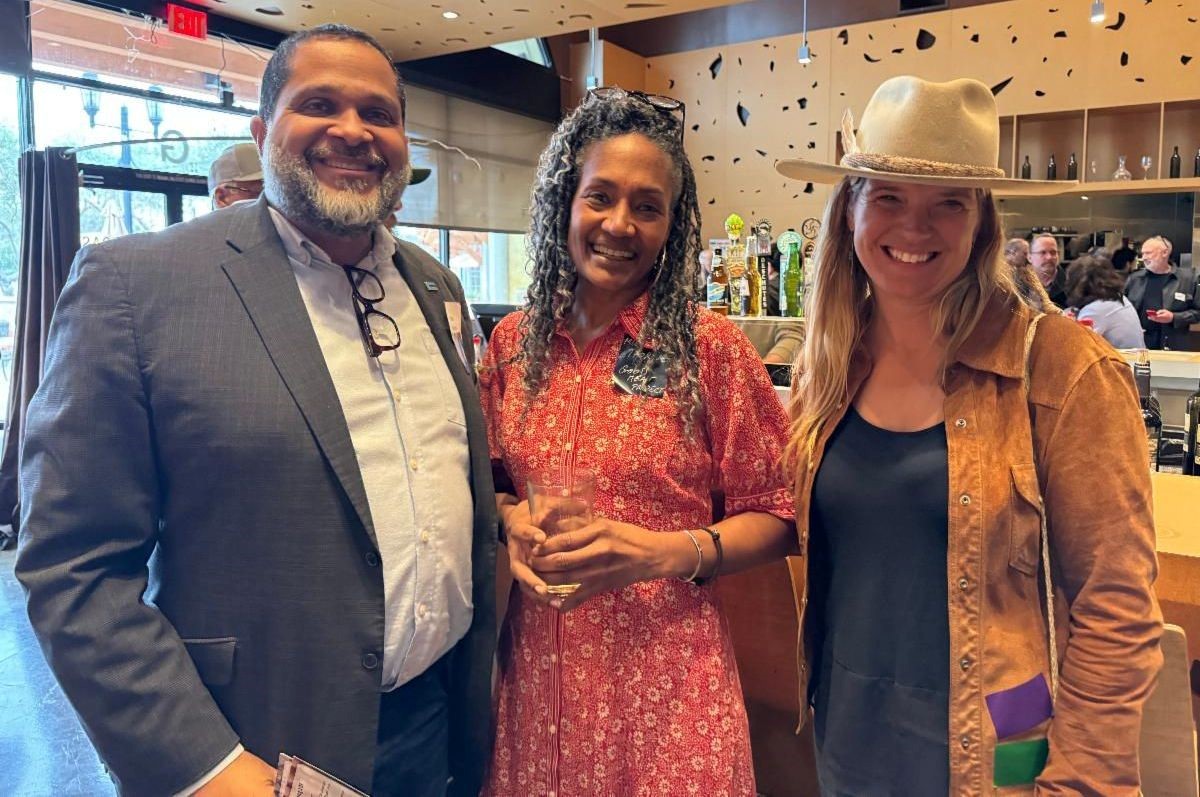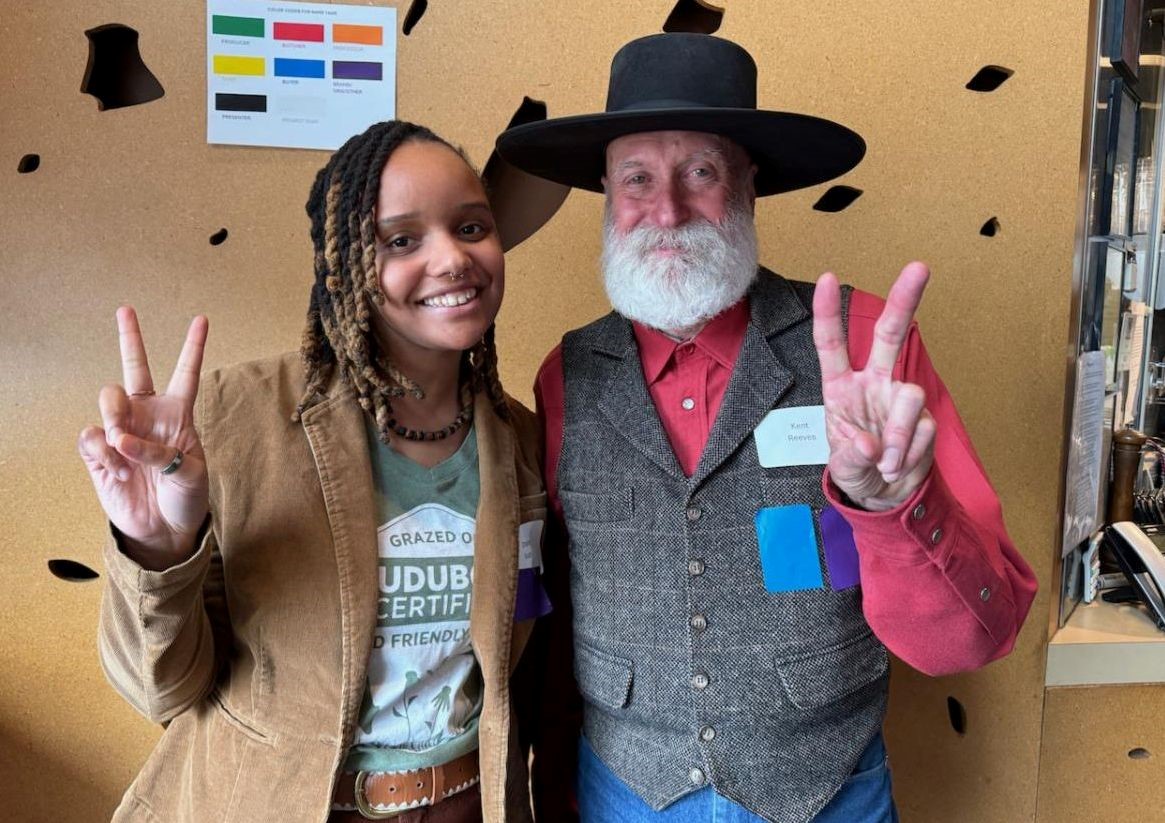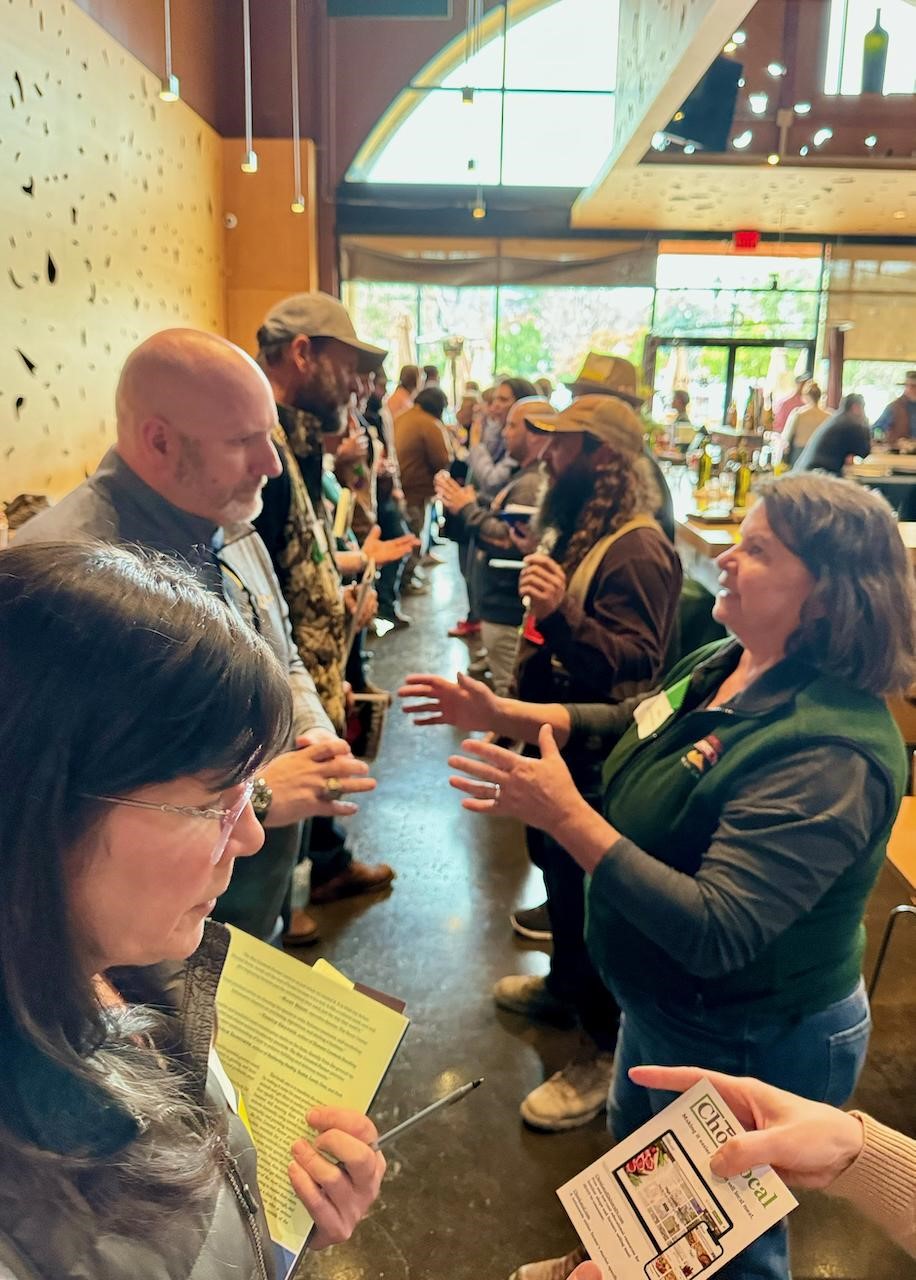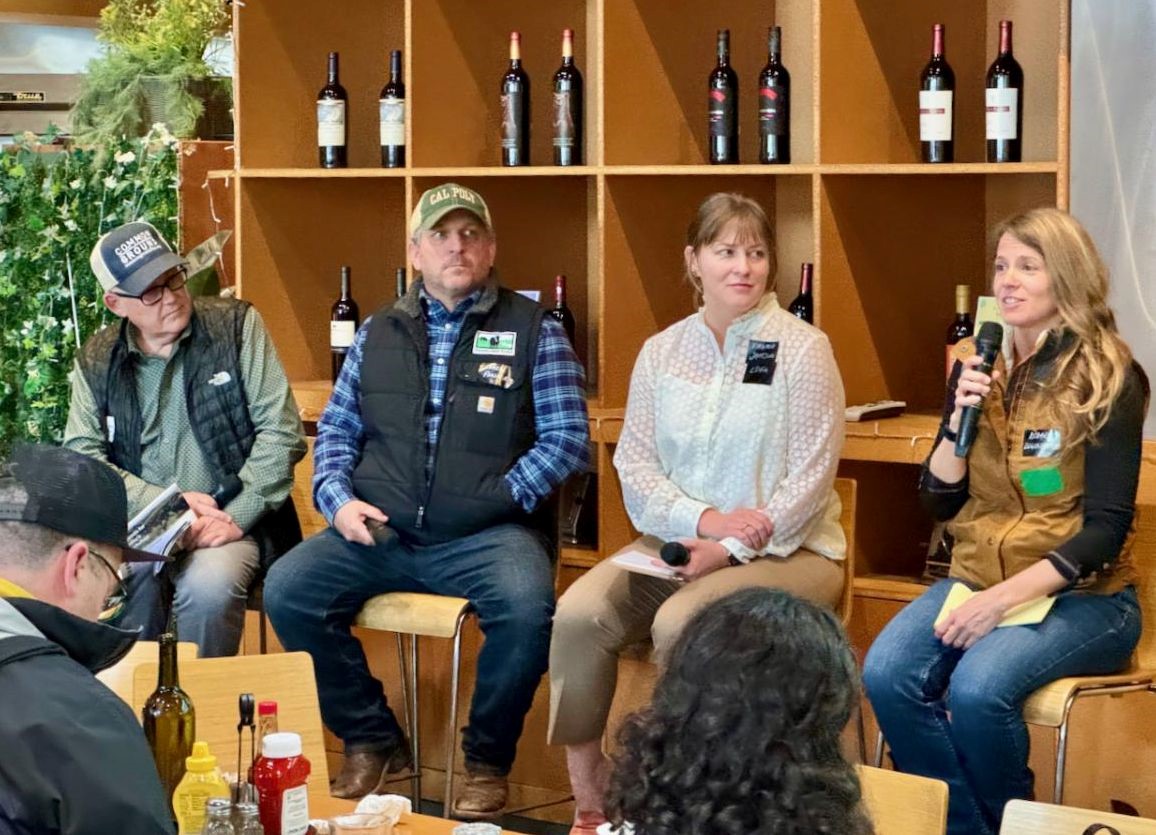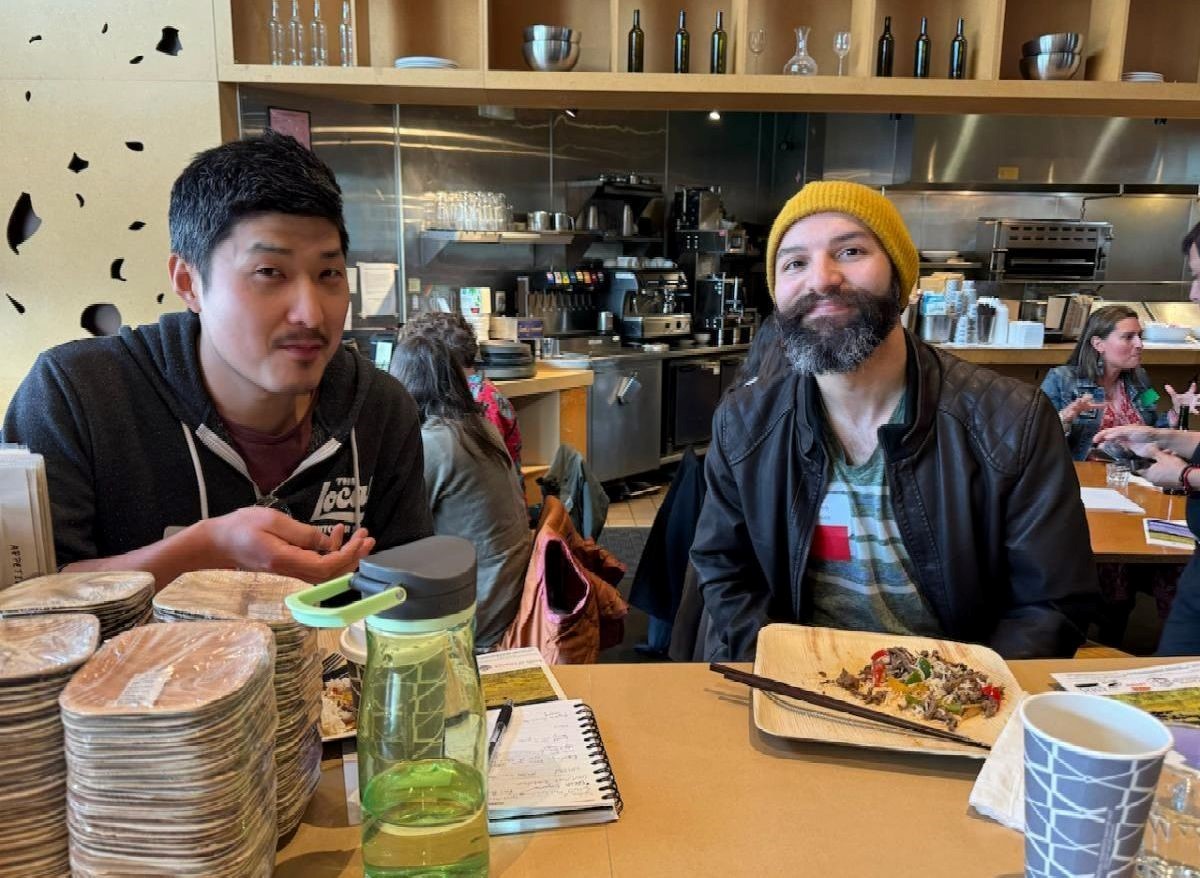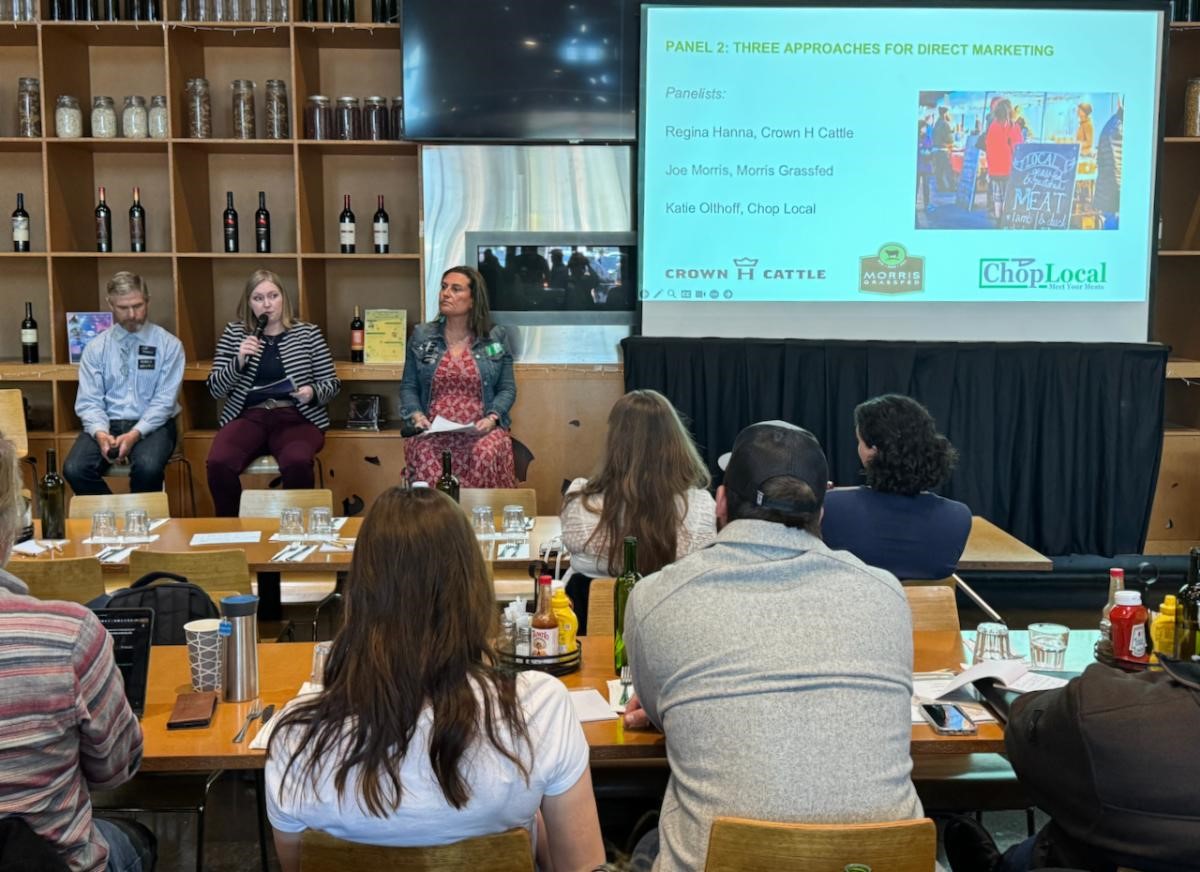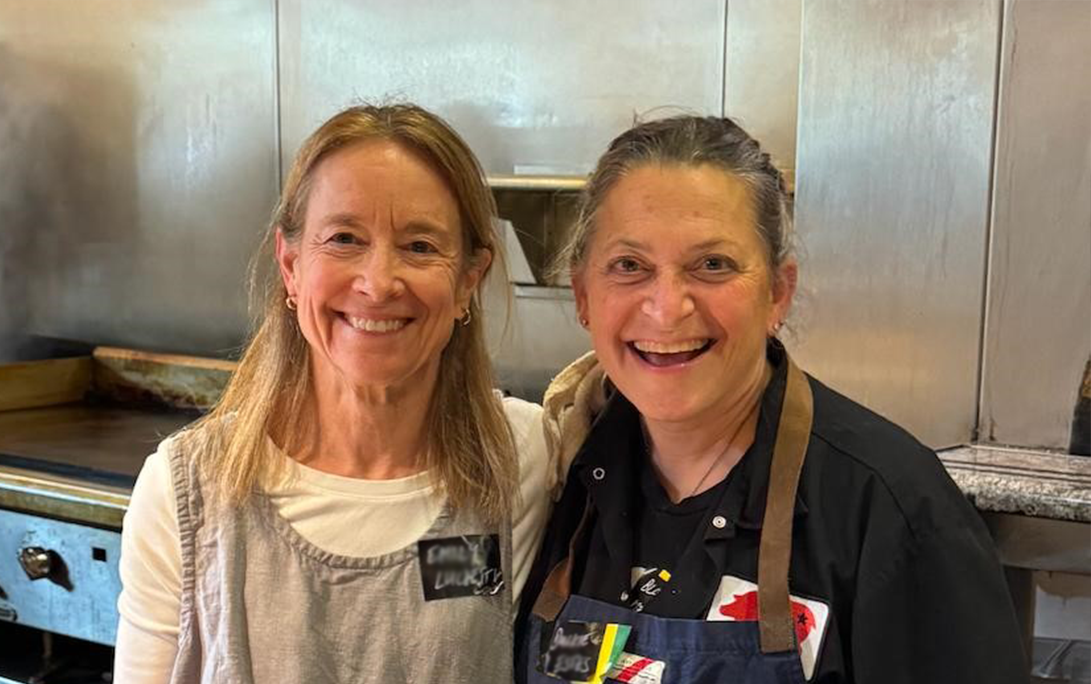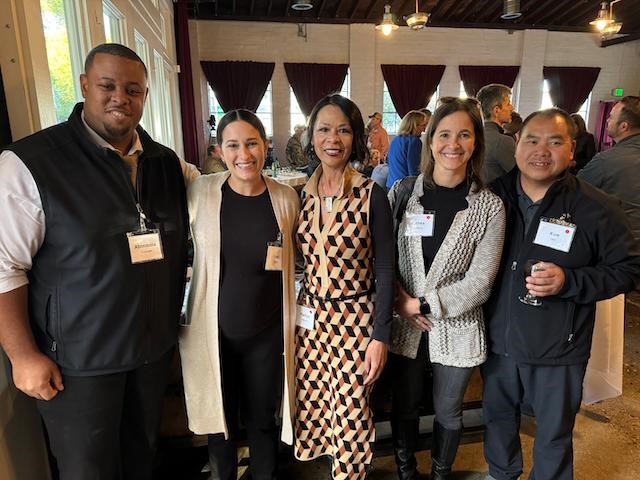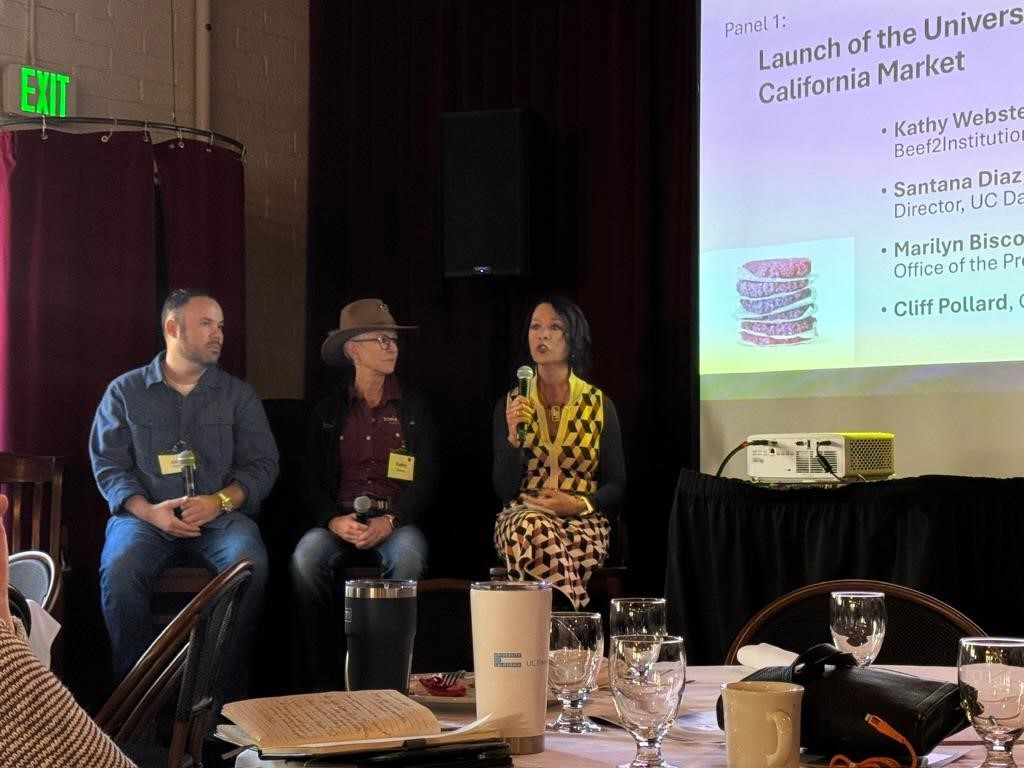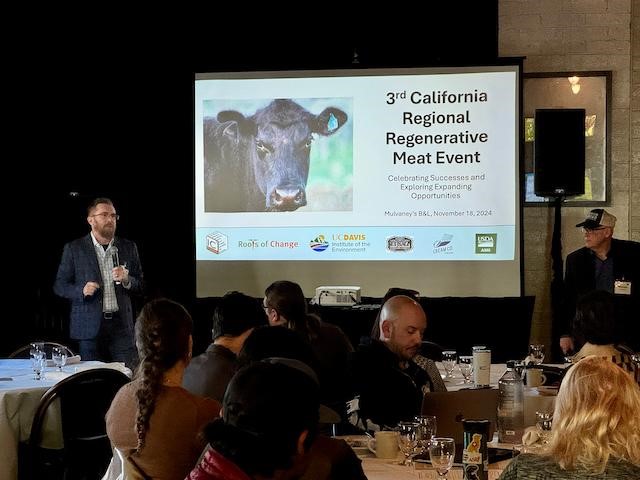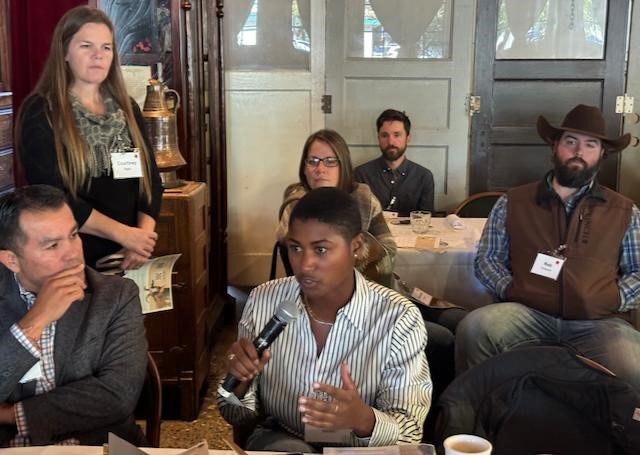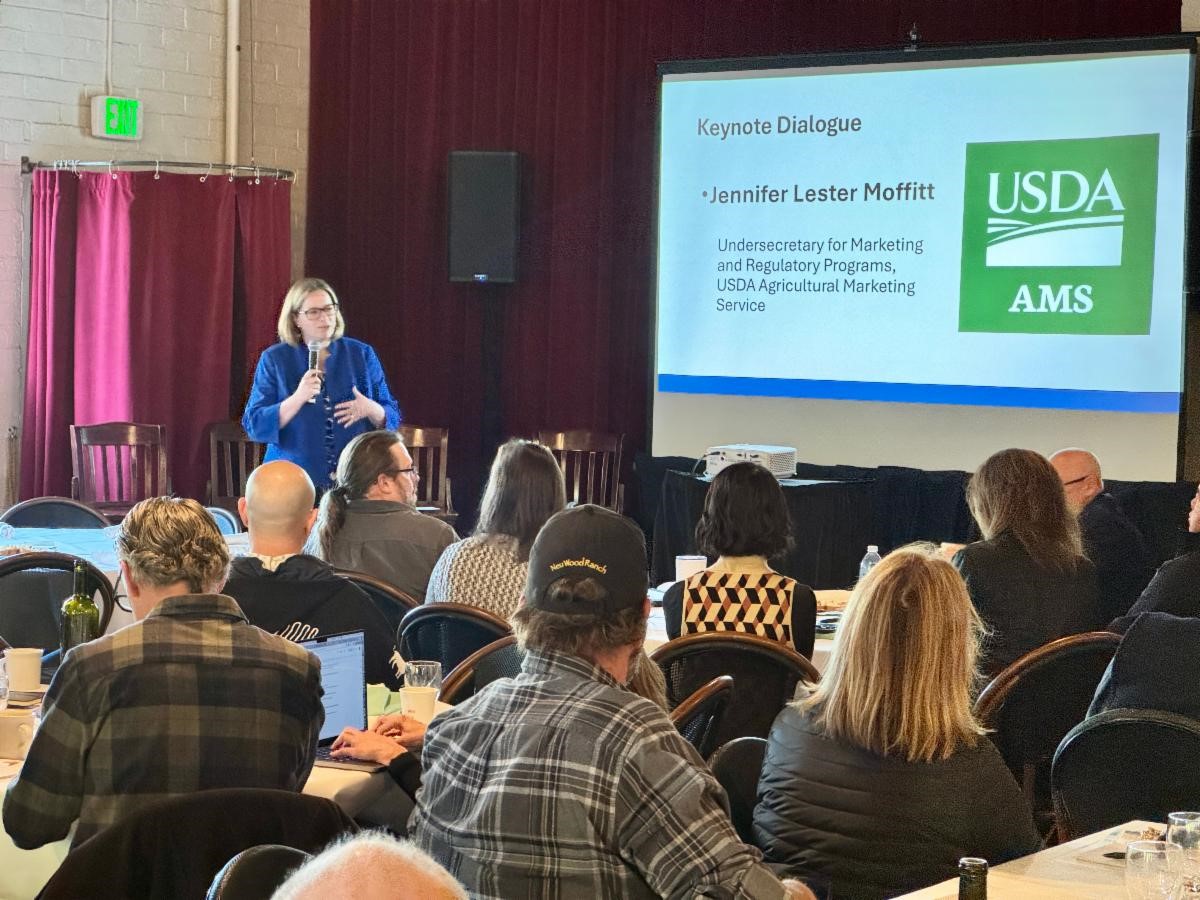Promoting Sustainable, Regenerative Practices in California’s Meat Production
Program
Highlights
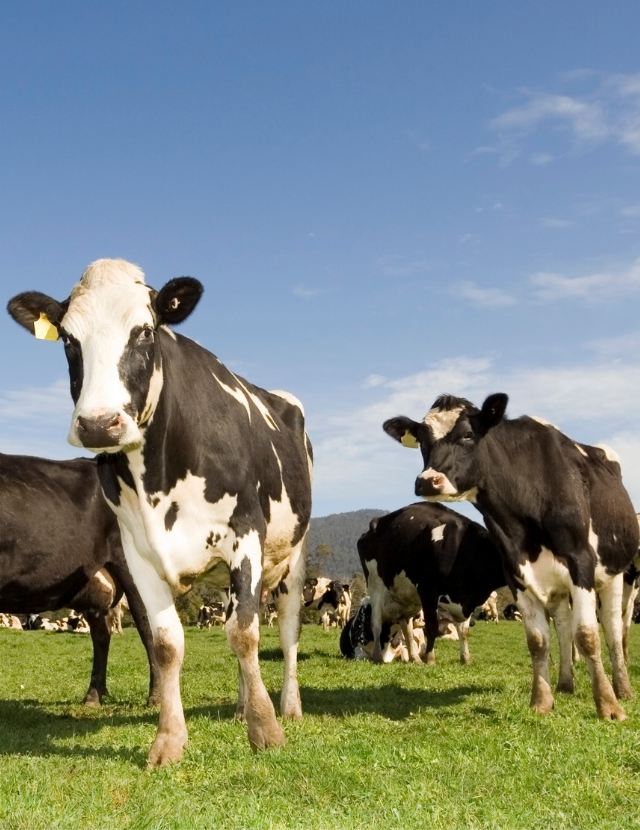
PHI’s Roots of Change (ROC) brings together partners and stakeholders to promote sustainable and regenerative practices in California's meat production, fostering collaboration and innovation within the food industry to create a more resilient and equitable food system for all.
600K meals served per day during the academic year by the University of California, which has now committed to supporting regenerative farming and local agriculture
130 animal producers, processors, butchers, buyers, and brands along with direct-to-consumer marketing and regenerative agriculture experts participated at the 2024 Regional Regenerative Meat Summit
-
Focus Areas
Capacity Building & Leadership, Environmental Health -
Issues
Nutrition & Food Security -
Expertise
Coalition & Network Building
Since 1967, seven thousand meat processing plants have closed in the United States. Only 3,000 remain and of those, many small and mid-scaled independent plants are on the verge of financial collapse. Today, three multi-national industrial meat companies control over 80% of the US meat supply. These near monopolies force down prices paid to farmers and ranchers and force up prices paid by chefs, food service and eaters. The droughts and wildfires of the last 25 years have only exacerbated the challenges.
Regenerative ranching offers a sustainable, attainable alternative, resulting in meat products that are sourced and produced in ways that rebuild soil health, reduce carbon emissions and promote biodiversity. Additionally, grass-fed beef has higher levels of omega 3 and omega 6 fatty acids in comparison to grain-fed beef, potentially exerting protective effects against several diseases ranging from cancer to cardiovascular disease.
Since 2009, PHI’s Roots of Change (ROC) has advanced the regenerative ranching model by bringing together hundreds of partners and stakeholders including meat producers, processors, advocates, chefs and others; researching the longstanding challenges in the meat supply chain, exacerbated by the COVID-19 pandemic; and more. By fostering collaboration and innovation within the food industry, ROC strives to create a more resilient and equitable food system for all.
Thanks in part to these efforts, in 2022 the University of California committed to supporting regenerative farming and local agriculture. The institution is now adopting a regenerative meat supply chain for its 10 campuses and five medical systems—which serve 600,000 meals per day during the academic year.

Roots of Change in the News: "Regenerative Beef Gets a Boost from California Universities"
In Civil Eats, Michael Dimock, program director of PHI’s Roots of Change and Santana Diaz, advisor to Roots of Change and executive chef at the University of California Davis Medical Center, discuss how a network of 10 campuses and five medical centers are supporting regenerative farming to mitigate the effects of climate change and drive a healthier, more equitable food system.
2024 Spring Regional Regenerative Meat Summit
In March 2024, Roots of Change and partners from the UC Davis Institute of the Environment and IC-FOODS brought together a diverse array of stakeholders from Northern California for the second Regional Regenerative Meat Summit. In total, 130 participants joined for an all-day workshop and dinner, designed to form new connections and explore sustainable and regenerative practices in meat production. Attendees included animal producers, processors, butchers, buyers and brands along with direct-to-consumer marketing and regenerative agriculture experts.
The event also featured Virginia Jameson, deputy secretary of the California Department of Food and Agriculture (CDFA), who participated in a panel discussion on Defining Regenerative Agriculture. The CDFA is currently in the process of defining regenerative agriculture for the state of California.
This event was part of ROC’s three-year effort, funded by the United States Department of Agriculture, to support small and mid-scale regenerative livestock farmers and ranchers to become a source of healthy meat for the University of California system, as well as California’s regionally owned grocers, butchers, and restaurants.
Photos from the 2024 Spring Regional Regenerative Meat Summit
2024 Fall Regional Regenerative Meat Summit
In November 2024, Roots of Change and partners hosted the 3rd California Regenerative Meat Summit. Many small to mid-size ranchers and producers as well as butchers, chefs and non-profit leaders from near and far attended the event. The goals were to celebrate the achievements made over the last three years of the project, explore emerging market opportunities and discuss potential paths forward for remaining challenges.
The event also featured a panel discussion, led by Marilyn Biscotti, UC Office of the President, that gave an update on the increase of regenerative meat supplied to the UC system since the beginning of ROC’s project. Cliff Pollard, CEO of Cream Co. Meats, shared some challenges in aggregating products from many different sources but was confident in their ability to handle the increased volume to supply the UC system. California Department of Food and Agriculture Farm to School Program Manager Nick Anicich, Sarah Keiser from Wild Oat Hollow, Jim Kleinschmit from Other Half Processing and Growing GRASS, and Steve Schwartz from Interfaith Sustainable Food Collaborative shared new market opportunities while Michael Delbar, CA Rangeland Trust and Loren Poncia, Stemple Creek Ranch, addressed remaining challenges and solutions in a dialogue with the audience. Watch the panel recordings.
USDA Undersecretary, Jennifer Lester Moffitt, offered the keynote dialogue and CDFA Secretary, Karen Ross, addressed the crowd at dinner emphasizing the importance of supporting small local producers and early food education.
Photos from 2024 Fall Regional Regenerative Meat Summit
Versions of this impact were first published in newsletters from PHI’s Roots of Change and Center for Wellness and Nutrition.
Work With Us
You change the world. We do the rest. Explore fiscal sponsorship at PHI.
Support Us
Together, we can accelerate our response to public health’s most critical issues.
Find Employment
Begin your career at the Public Health Institute.
